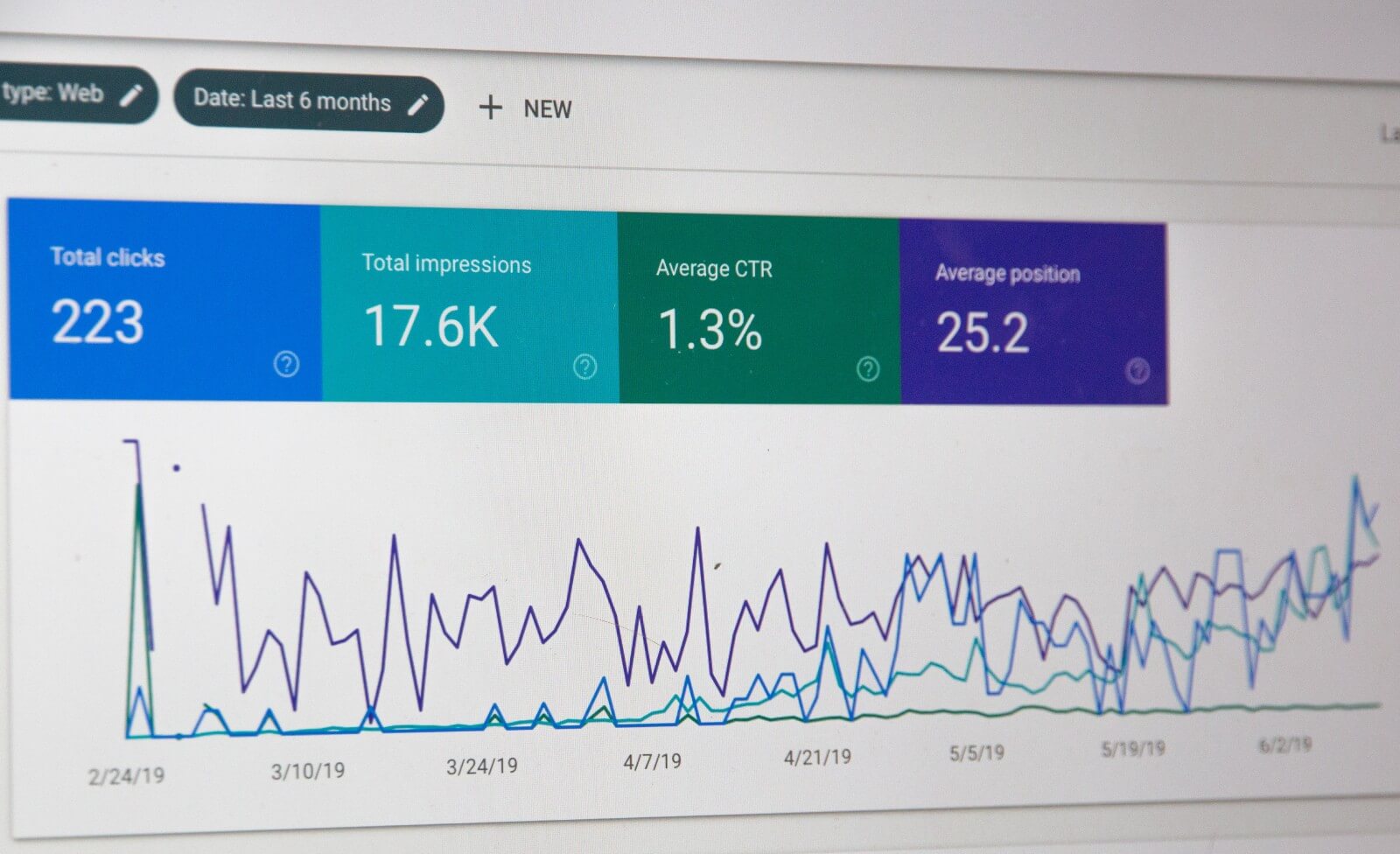How to Protect Your Website from Negative SEO
Halloween is coming up right around the corner, but let’s be real: the entire month of October is about monsters, haunted houses, and trick-or-treating. Unfortunately, it seems the trick part of trick-or-treat is around all year when it comes to SEO.
Not all SEO services are good ones; we’ve had clients who have been tricked by what they thought were good SEO practices but were not — they were negative SEO tactics.
Protect yourself from being tricked into signing up for an SEO program that uses negative SEO and other black hat tactics. Better yet, contact OppGen to learn more about our SEO program. We don’t use black hat or negative SEO tactics to get our clients to rank on Page 1 on Google.
What is Negative SEO?
Negative SEO is the practice of using unethical techniques to get competitors’ websites to rank lower in search engine results pages (SERPs). It is a type of black hat SEO, which is a phrase often used to describe unethical techniques to rank higher on Google.
While negative SEO may sound like a good practice — after all, you want to rank higher than your competitors — it is one that can do real harm to your website.
Negative SEO can be done in many different ways:
Hacking Your Website
Though it’s not the most common form of negative SEO, hacking into a website due to bad security or an easy-to-guess password can certainly wreak havoc on a site. A hacker can do many things to your site that will harm its ranking, such as linking to spammy sites, altering the code in ways to make it harder to access or slower, and changing any information on the site.
Copying Content and Posting It All Over on Other Sites
Duplicate content is a bigger problem than you may think: nearly a third of all content on the web is duplicate content.
Duplicate content is any content on a website that’s the same or similar to other content across a website or several websites. Basically, if the content is the same but the URLs are different, it is considered duplicate content. Duplicate content is a sign of a low-quality website, and if the same content is spread across several other websites, it can lead to your site taking a nosedive in the SERPs.
Building Up Hundreds or Thousands of Spammy Links and Backlinks to Your Site
Link building is a key practice when it comes to SEO, and some links are considered significantly better than others for quality. That said, if other websites with very poor domain quality point back to your site, that will affect your website’s ranking for keywords.
Leaving Fake Negative Reviews
Negative reviews on Google My Business listings and other review websites certainly have an impact that goes further than tanking your website’s SERPs rankings — they can also hurt your business’s reputation and revenue. A Harvard Business School study found that even a 1-star increase on Yelp leads to a 5 to 9% increase in revenue. Another report found 82% of shoppers won’t select a retailer with less than 3 stars.
While negative reviews can (and will) happen, they shouldn’t be occurring too frequently (unless you’re providing incredibly poor service or low-quality products). If you’re suddenly experiencing an influx of negative reviews, you may be getting hit with a slew of fake reviews as part of a competitor’s negative SEO campaign.
How Do I Know if My SEO is Negative?
It can be difficult to know whether or not negative SEO is being performed on your site. The key thing to keep in mind is that a sudden drop in rankings does not mean you are the victim of negative SEO; that’s usually due to an update in Google’s algorithms or being filtered out due to the creation of better content.
A better way to be aware of negative SEO is to pay attention to these red flags:
Someone Offering to do Negative SEO or SEO Services at a Very Low Cost
This may sound obvious, but the problem is not everyone knows what negative SEO is, let alone what it looks like. And a lot of people do offer it as a service for an incredibly low cost on websites like Fiverr. There are black hat forums all over the web where you can find people discussing how they took down sites using negative SEO.
It’s important to remember that you get what you pay for. While a $5 SEO strategy sounds like a bargain, it’s often going to cost you far more than that $5.
Copying and Pasting the Same Content with Minimal Differences
Duplicate content is an easy way for your site to start tanking in the SERPs rankings. Some SEO experts or content writers will reuse the same content repeatedly and then change a word or two. This is a practice that can really hurt your website, so it’s always a good idea to actually read the content that is going up on your website and compare it to other pieces.
Buying Links from Blog Networks and Selling Links Without the “nofollow” Attribute
Buying links from blog networks can be something that can potentially affect your site’s SERPs rankings, as it’s considered a black hat SEO tactic.
Similarly, selling your links to other people and not including the “nofollow” attribute to your links can also negatively affect where your site appears on search engines.
As a general rule of thumb, just don’t buy or sell links — it could save you some pain in the long run.
What Can I Do to Protect My Website from Negative SEO?
Now that you know what negative SEO looks like, you’re probably wondering how you can protect your site from negative SEO practices.
This list is far from comprehensive, but it should be a good starting point.
Keep Your Site’s Security Up to Date
Hacking a website is a surefire strategy to tank that site’s rankings, so it’s important to have all of your security up to date. This might mean updating security patches and plug-ins on a regular basis and making sure your CMS software is strong enough to protect your information in a cyber attack or security breach.
If you’re still using an HTTP address, you need to migrate your site to HTTPS as soon as possible. HTTPS is more secure than HTTP web addresses and this is especially important if you’re running an e-commerce business. It protects your customers’ valuable data, like credit cards, from being stolen and abused by hackers. As a bonus, HTTPS sites are now considered a ranking factor for SEO.
It’s also important to change your password and make sure it is difficult to guess. Avoid playing “games” on Facebook and other social media sites that ask questions are commonly used when requesting a lo for lost password information, such as:
- What is the name of your childhood pet?
- What is your mother’s maiden name?
- What street did you live on in first grade?
- What was the name of your third-grade teacher?
Just to name a few.
It’s also a good idea to install 2-step verification passwords on your websites and email addresses as well. With WordPress, you can install the Google Authenticator Plugin to add an extra step for logging in, which will send a random code generated by Google Authenticator to your smartphone. It might be a slight nuisance, but it’s an easy thing to do that can keep hackers at bay.
Perform Link Audits on a Regular Basis
An influx of bad backlinks can certainly hurt your SERPs position, which is why it’s always a good idea to run a link audit through a service like SEMrush. There, you can review your backlinks and see if you’re dealing with any spammy links. Be sure to check every link that appears to be spammy or negative — not all of these links are bad backlinks. Some may just be from websites with low domain authority, and that doesn’t make it a bad link.
Once you have a list of bad backlinks, you can go to Google Search Console and submit those links to be disavowed.
Use a Plagiarism Checker
Duplicate content is easy to find thanks to plagiarism checkers. Try using a free one like Copyscape to see if your content is being plagiarized by other websites. If your content is being plagiarized on other sites, you have a few options:
- Email the webmaster. It could be they do not know their content has been lifted directly from your site. You can send an email to let them know the situation and request that they remove the page.
- Submit a DMCA takedown notice to the ISP. In more difficult cases, such as a webmaster denying that it is your content in the first place and refusing to remove it (or they simply won’t respond to the email), you’ll have to submit a DMCA takedown request to their online service provider. DMCA.com can help you get started on preparing this legal document that will have the ISP or hosting company remove the content from the website and other information about the law. Google also has a copyright infringement removal form you can use.
Pay Attention to Google My Business Reviews
Unless your business has gone viral for something bad, you shouldn’t be seeing an onslaught of negative reviews on your Google My Business listing. In such an event, you might be dealing with someone spamming your listing with fake negative reviews.
Thankfully you can flag and report fake reviews on Google My Business. You can do it through Google Maps, a Google search for your Google My Business Profile, and your Google My Business account. Simply find the review you want to report and follow the instructions in the video below:
Keep in mind that this should not be used for real negative reviews or reviews you dislike or disagree with. With real negative reviews, you should at least respond to them.
Protect Your Website from Negative SEO This Spooky Season — or Any Time of the Year — with OppGen
Hopefully this blog has made negative SEO a little less scary. It’s not a common phenomenon, but it is still important to be aware of negative SEO and black hat SEO tactics, as they go hand in hand.
If you think you may be dealing with negative SEO, please fill out our digital audit. Our SEO team will review your website and let you know if anything seems awry. We’ll also make suggestions as to how you can improve your website through SEO strategies. Feel free to contact us if you have any questions or want more information.





